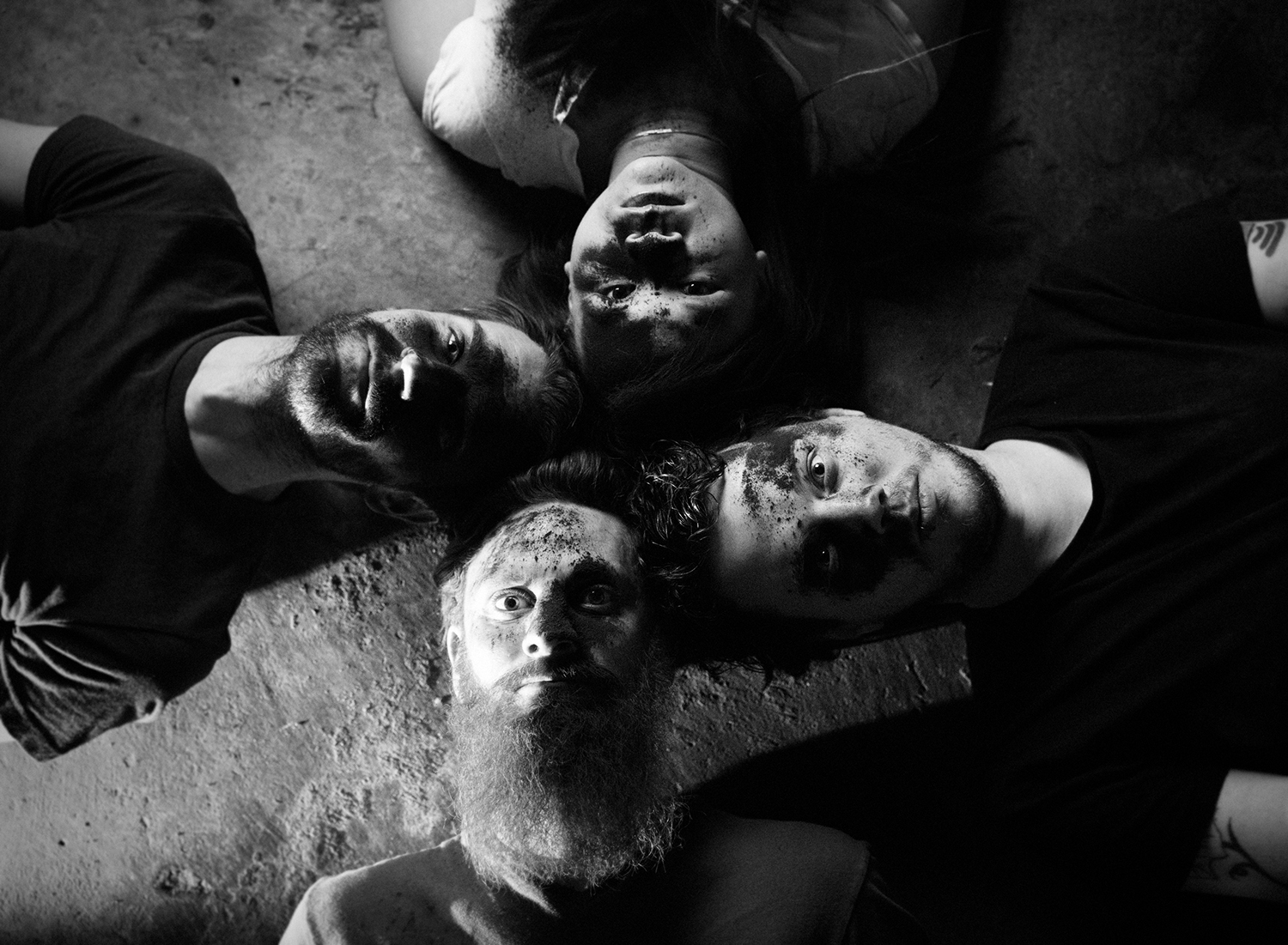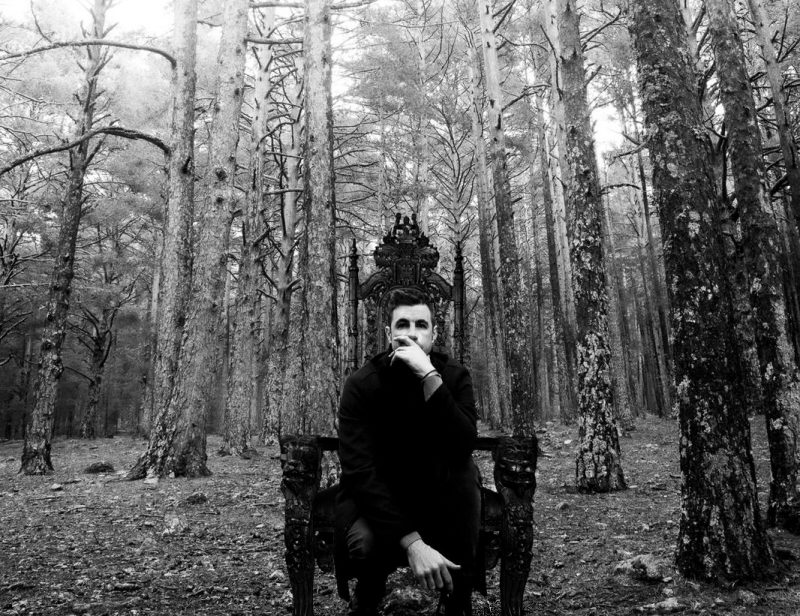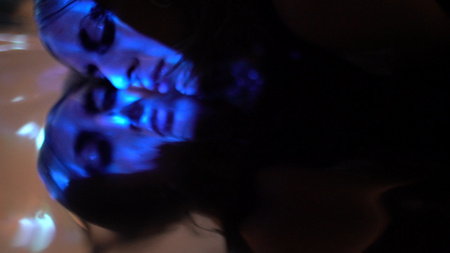Interview: 5 minutes with Jilk
Jilk are an experimental electronic band based in Bristol, England. Gaining an assorted collection of praise from influencers such as Red Bull Music, DJ Mag, XLR8R and Clash Mag, their music has also received great traction from significant platforms, including BBC Radio 1’s George Fitzgerald and BBC 6 MUSIC’s Gilles Peterson.
Band members Jonathan Worsley, Cags Diep, Terry Owen and Neil Gay have shared the ideation process every step of the way, releasing their most beautiful set of compositions yet. Through an apocalyptic narrative, their new album Joy In The End explores themes of hope found in desolation and the eventual and inevitable cyclical return of loss and joy. An album for the current worrying times as well as the personal joys that can combat those worries.
We caught up with Jilk on creating, recording and producing heartfelt music:
Set the tone for us. Why the arts?
Art, especially music provides a totally unique experience and cannot be bettered. It speaks above most other things and has consistently been a source of emotional catharsis and intellectual stimulation for as long as we can remember.
Which comes first when you’re producing – the sound or the idea?
Different tracks happen in different ways. Sometimes it’s very much an idea or an inspiration that forms in a more metaphorical sense and sometimes it’s a found sound captured outside of the studio – and sometimes it’s just from pure play and exploration.
Does your material feature any collaborations?
Yes the album has lots of our friends on it – drumming, singing, playing sax and bass. Collaboration is very important to our creative process – it’s essential that we can work with pallets and techniques outside of just our own abilities.
Tell us about the chemistry you have with your fans on stage.
We like to create a very intimate atmosphere with our gigs – quiet but close. We’re awful at stage banter so there isn’t much direct interaction but we like to make up for that with a deep musical connection with the audience. We like to think they are 50% of what is happening in the room – like a ritual that both audience and band are complicit in.
What techniques do you experiment with to get your original sound?
Lots of granular synthesis – we like to take sounds, instruments and textures and pull them apart, or get inside them. Really drill down to the tiny elements that live inside larger longer sounds. Anything is a sample and anything can be sampled. Also not having any fear around using different textures or instruments – disparate sounds can be married together if you work at it. Intangibility is wonderful in this sense.
Take us through a day in the recording studio.
We use file swapping techniques a lot so we’re rarely in the same space but when we are we like to set up in unusual rooms with interesting reverb – places that will infuse the recordings with their own character and atmospheres. We sometimes have a definite idea of what needs to happen and sometimes we’re just playing or improvising. We’ll set several mics to pick up different aspects of what’s happening and capture the mistakes and serendipitous moments. Sometimes it’s a very lonely process with each of us sat in different dark rooms staring at the same grain of sound looping over and over and forever tweaking.
Was there a specific moment in your life where you thought, “this is what I want to do”?
We all came to music in a different way at different times – I think it’s always been there – whether realized or not. In that sense it wasn’t a conscious choice but something that just happens and cannot be stopped.
What do you keep close by while you’re playing a set?
Drinks and the stage exit.
Any emerging artists on your radar?
Kayla Painter is awesome and doing really interesting things with form and dynamics. She released a great tape EP this year that’s worth checking out.
What gets your creative juices flowing?
Other musicians doing interesting and stimulating things – films, books – more and more books make us want to make music. There’s an interesting notion of getting the texture of the written word and trying to translate that to non-verbal sounds.
Take us through your collection of gear, tech or software that accompanies your creative expression.
On stage we have a laptop running some MAX/MSP patches that allow for sample manipulation of specific stems or loops. Also some soft synths and a small bespoke software that allows us to mix stems and the bits of the tracks we can’t do live. Then we have a vibraphone, trombone, xylophones, guitars and loads and loads of pedals….too many pedals. For the studio we use lots of bits of software and hardware – mainly pro tools and logic but lots of hardware synths and anything we can stick a mic on.
Any side projects you’re working on?
Just Jilk at the moment.
How have you refined your craft since you entered the industry?
We’ve got better at recording and mixing – we mixed the whole album ourselves and recorded everything ourselves. Although we’re not against working with a separate engineer we enjoy exploring that side of the process ourselves and find it very empowering to be in charge of that element. We’re better at it from a technical perspective as well as an artistic one.
Breakdown the news for us: what can we expect from you this year?
The album has taken a lot of energy and we’ll spend the rest of the year enjoying seeing it out in the world. We’re going to gig it as much as possible because performing the tracks live is very different to the record and we’re excited to share that. The way that we write means that we have a lot of material stored away – so at some point we’ll start shaping that into our next release.
Jilk’s new album titled Joy In The End was released worldwide on September 1st via Project Mooncircle.
Keep up to date with JILK on Facebook




